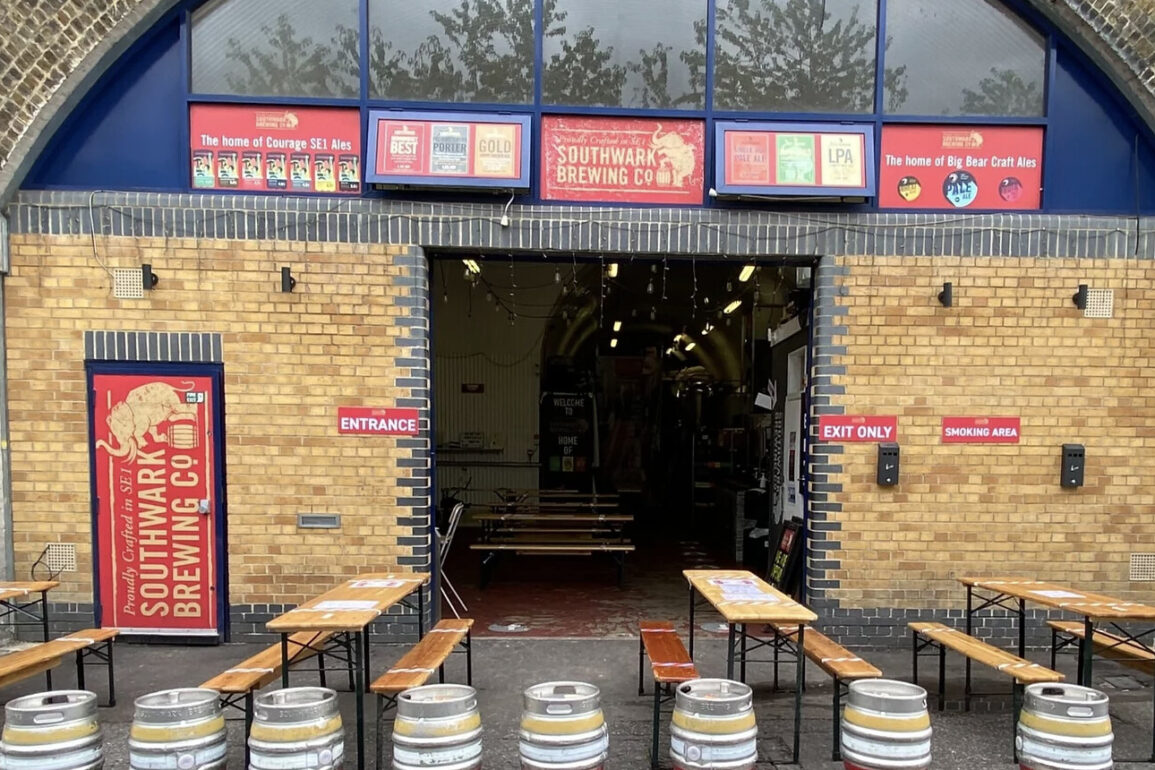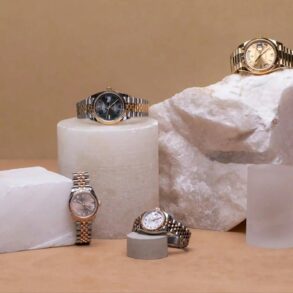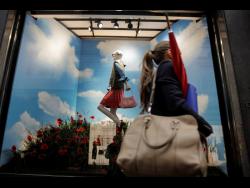Not far from Tower Bridge in London sits “Bermondsey Beer Mile,” a mile-long stretch of road in a former industrial area that now houses multiple craft breweries and taprooms. A great spot to grab an artisanal draft, Beer Mile is also the unlikely inspiration for a luxury handbag courtesy of Arda Biomaterials.
Founded in 2022, Arda is developing alternative materials using spent grain from the beer brewing process to replace leather, plastics and other materials found in industries like fashion and automotive. It’s one of a growing number of startups developing new materials for these industries that aim to be more earth-friendly than plastics and other synthetic materials.
Arda just announced the launch of its first product with label BEEN London, a snakeskin handbag made from grain sourced on the Beer Mile.
Cofounder Brett Cotten had originally thought to use spent brewers’ grain to make alternative meats. One phone call to Anheuser-Busch later, he decided to pursue another route.
“Materials are much more forgiving than protein isolates for food,” he tells AgFunderNews.
Below, Cotten delves into why Arda chose to focus on materials versus meats, the new partnership with BEEN London, and what’s next for the company.
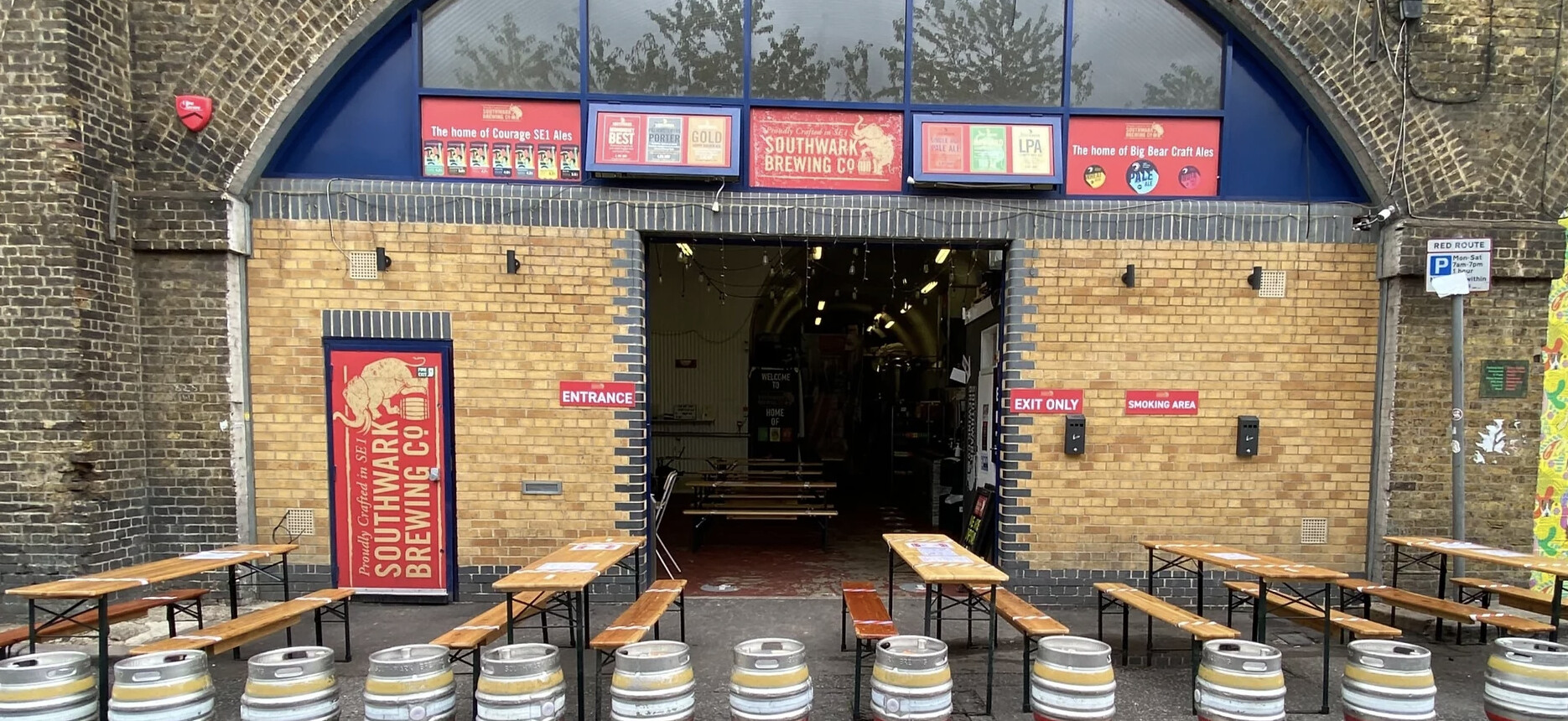
AgFunderNews (AFN): How did the company start?
Brett Cotten (BC): I’m from the US but I moved over to the UK five years ago to complete a Master’s [degree]. I did some work within the food industry after but I really want to start a company of my own, so I joined this startup accelerator called Entrepreneur First. It’s kind of like “The Bachelor” meets “Shark Tank.”
There are 80 people in the program, and there was one guy who came out of Oxford with a PhD in chemistry and wanted to work in the climate space. It just so happened that, out of all of London, we were neighbors, and also [living] really close to the accelerator at the time.
We were based in the craft brewing hub of London. At the Tower Bridge, there’s a string of micro-breweries that moved in after the area was de-industrialized. It used to have a leather industry, glue, fur, biscuits, pickles, you name it. During World War II it got bombed and didn’t bounce back. So all the brewers moved in.
One guy told us, “Your neighbors are the brewers, you should go chat to them and see what you can do with their waste.” We discovered that the brewers had this big waste stream of spent grain made from pure barley. They just want to get the sugar out [of the barley] and then they discard the rest.

What we can do is take this barley, and the sugar’s been removed, all the soluble proteins have been removed, and we can extract the leftover protein and manipulate it into these new materials.
AFN: Why start with something like handbags?
BC: I come from the alternative protein industry, where I know a lot of the plant-based meat companies hate using pea protein and are trying to move away from it. Trying to come up with a competitor protein, I called up a friend who was working at Anheuser-Busch at the time at their venture arm. She said don’t [use spent grain for alternative meat] for three reasons.
One: To turn a waste source into a human food ingredient can be a challenge on regulation.
Two is that the price points don’t quite work unless you’re absolutely massive — five bucks per kilogram of protein is really difficult to compete with at the small scales, which is why only the big brewers like AB InBev are doing it.
And the last thing, which is really important, is [around] the standardization of the feedstock. For food applications, if we were to create this protein isolate that could go into plant-based meat, plant-based dairy, other food categories, it would have to be perfect. Plant-based meat is so highly engineered that if you have little [issues] on the upstream, it has a big knock-on effect downstream.
Materials are much more forgiving than protein isolates for food, and the price points are better. [The materials sector] lends itself really well to doing two things: replacing plastic through the use of protein and mimicking the structure of animal based proteins built with plants. So I realized actually there’s a whole bunch of wearable materials instead of edible materials that we could go after.
AFN: How does the company work?
BC: We make biomaterials and then sell them off into different industries, whether that’s fashion, automotive infrastructure or otherwise. The leather-like materials are really great for a few reasons. One is the price points.
Then there’s a huge problem to solve volume-wise. By working with the breweries, we can scale and also keep our unit economics really low to offer a suite of different options from luxury to commodity, different patterns, different thicknesses, for everything from footwear to automotive, other transport and fashion.
AFN: What’s unique about working with the brewers?
BC: Brewers are special in a few unique ways. We can use some of the same equipment that they do, like the big metal vats to extract the protein.
They’re also essentially a bunch of scientists and engineers that run factories 24/7 around the world, so they can help us to scale and operate. Finally, they end up sponsoring everything from fashion, music, sports, automotive, tactic, more, so they actually now connect us to the end category that we want to sell into.
Imagine working with a brewer in Germany that’s close to the automotive industry. We can make special materials for that. Or you can work with breweries in Portugal for the footwear, or with French and Italian luxury [companies].
AFN: How did the BEEN London partnership come about?
BC: In the background, we are working with some of the really large luxury groups in fashion and beyond, but big corporates work a little bit slower, and we really wanted to have a way of showing our material’s [transition into a] product. One concern with doing that is whether the fashion brand is quick and if they are familiar with new materials and the feedback loop involved.
BEEN London had worked with Biophilica [another London-based alt-materials company], so they already knew the expectations around how new materials improve so quickly. [BEEN London is] really local to us as well. They’re just over in northeast London. So we could also tell this story of local supply chains once again. So we work with a brewer here on the beer mile called Colonel Brewery, where we get most of our grain.
AFN: What are you working on besides bags?
BC: We’re already working behind the scenes on other materials. So when we extract the protein out of the spent grain, we can turn it into infrastructural materials or packaging. We’re also working on things like adhesives on textiles.
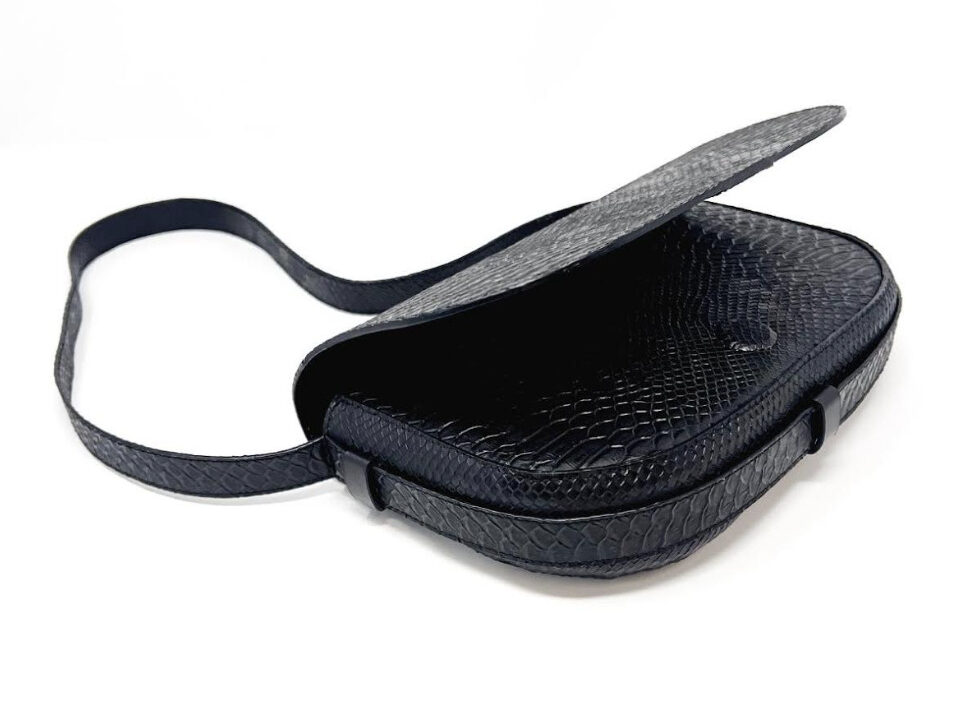
AFN: What are the biggest challenges right now for alt-materials companies?
BC: Our challenge at the moment is we have a really limited capacity to make things. We started off in a kitchen, and then we moved to 150 square foot lab, and now we’re in a 1,000 square foot space, but only half of that’s for the lab.
We are such a small team that we can’t keep up with demand, so we have to really be choosy about what we can deliver on.
Right now we’re fundraising so that we can level up to the most scalable approach and then also deliver on a lot more of these proof of concepts outside of fashion as well. We have a lot of interest from the automotive industry, and just passed one of our key automotive tests, which is abrasion.
Another challenge is that you have to create different esthetics, but you also have to create different performances. If you’re going after the fashion industry, one designer might love a certain kind of print that another one doesn’t use at their brand. So you really have to work on different options, as far as different textures, different colors, different levels of shine.
In terms of performance, it’s things like making the material more water resistant. Look at leather: If you submerge it in water, the oils will leach out and you’re left with something that’s quite stiff once it’s dried out. We’re trying to make material that can withstand water and not have its oils leach out so it maintains its structure and flexibility. And that’s something [on which] we’ve actually made some big breakthroughs in the past month.
AFN: What’s next?
BC: We’re pretty much a plant that has outgrown its pot. Fundraising is really the bottleneck for us at the moment. As soon as we do [that], we will move from a batch process to a continuous process. Mycelium, bacterial cellulose, cultivated, they all produce in the batch process, which really limits their scalability.
But then you have other methods, like natural-fiber welding, which do a continuous process, which we’re currently making a leap to. That’s the most scalable way you can produce.
So we’re going to raise, we’re going to create a small pilot rig so we can optimize the individual bits of this continuous process, put them together and then patent it. Then on a Series A we’ll co-locate with a brewery so that we can produce directly off of that brewer.
This post was originally published on this site be sure to check out more of their content.


